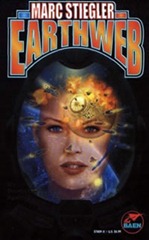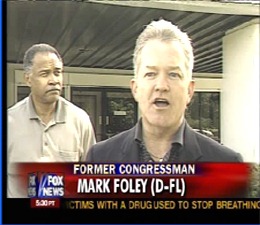Seen in the window at a shop in Bloor West Village and coming soon to your grandmother’s (or a die-hard Star Trek or M*A*S*H fan’s) house:
Month: June 2009
This is what ten dollars got you at Thursday’s Pride Week barbecue at University of Toronto’s Hart House:

It was quite a meal: one beef kebab, one piece of chicken, 4 pork ribs, a slice of bread, roast potatoes, steamed vegetables and salad, all prepared quite well. The Ginger Ninja and I enjoyed it.
I no longer live in Accordion City’s Queen/Spadina neighbourhood and therefore don’t play there very often anymore. Luckily that doesn’t mean that they’re lacking for the accordion: there was a guy playing a fine little red number there earlier this afternoon:

Squeeze on, good sir!
Here’s another article that would normally just stay in my tech blog, Global Nerdy. However, it covers the intersection of life, politics and technology, which I think would also appeal to non-techies, which is why I’ve reposted it here. Enjoy!
Marc Stiegler
 I met science fiction author, software developer and computer security guy Marc Stiegler at the first incarnation of O’Reilly’s Emerging Technology Conference in 2002, but I’d been acquainted with his work prior to that. I’d heard of his programming language called E and had read his science fiction novel Earthweb, whose plot could be grossly oversimplified down to the summary “Twitter saves the world” (it’s a little bit more than that, but I think it conveys the idea nicely).
I met science fiction author, software developer and computer security guy Marc Stiegler at the first incarnation of O’Reilly’s Emerging Technology Conference in 2002, but I’d been acquainted with his work prior to that. I’d heard of his programming language called E and had read his science fiction novel Earthweb, whose plot could be grossly oversimplified down to the summary “Twitter saves the world” (it’s a little bit more than that, but I think it conveys the idea nicely).
Marc’s Final Exam
However, when I think of Marc, what comes to mind first is the final exam that he gave to students at his “Future of Computing” course and published online in 1999. In it, he posed a set of problems and asked them how a specific set of proposed web technologies could be used to solve them. The course and exam have a very strong sense of “technology trumps legislation”, an idea that was surfacing in the late 1990s.
In the exam, students had to pick 5 out of 11 problems that Marc posed and then explain how any combination of the following technologies could be used to solve them:
- Unforgeable pseudonymous identities
- Bidirectional, typed, filterable links
- Arbitration agents
- Bonding agents
- Escrow agents
- Digital Cash
- Capability Based Security with Strong Encryption
(If some of these ideas are unfamiliar to you, don’t worry. They’re not important in the context of this article, and you can always Bing them.)
Here’s a selection of the problems posed in the exam. Remember, this exam is from ten years ago!
1) Searching for a decision analysis tool on the Web, you find a review in which the reviewer raves about a particular product. You buy the product and discover it just doesn’t work. You desire to prevent this person’s ravings from harming anyone else–and you desire to prevent the product from disappointing anyone else.
4) You start receiving thousands of emails from organizations you don’t know, all hawking their wares. You want it to stop, just stop!
5) You wish to play poker with your friends. They live in Tampa Florida, you live in Kingman. This is illegal in the nation where you happen to be a citizen. You want to do it anyway.
6) You hear a joke that someone, somewhere, would probably find offensive. You wish to tell your precocious 17-year-old daughter, who is a student at Yale. The Common Decency Act Version 2 has just passed; it is a $100,000 offense to send such material electronically to a minor. You want to send it anyway–it is a very funny joke.
7) Someone claiming to be you starts roaming the Web making wild claims. You want to make sure people know it isn’t really you.
The Final Question
The most compelling question on the exam is the final one. It required a far more extensive answer than the other ten – so much more extensive that Marc actually suggested that it might be better not to answer the question in the exam, but to at least think about it:
But…if you can answer Question 11 in your own mind, even though you choose not to write up that answer for this examination, then a most remarkable thing will happen: you will walk out of this class with something profoundly worth knowing.
Here’s that final question:
11) You live in North Korea. Three days ago the soldiers came to your tiny patch of farmland and took the few scraps of food they hadn’t taken the week before. You have just boiled the last of your shoes and fed the softened leather to your 3-year-old child. She coughs, a sickly sound that cannot last much longer. Overhead you hear the drone of massive engines. You look into the sky, and thousands of tiny packages float down. You pick one up. It is made of plastic; you cannot feed it to your daughter. But the device talks to you, is solar powered, and teaches you how to use it to link to the Web. You have all the knowledge of the world at your fingertips; you can talk to thousands of others who share your desperate fate. The time has come to solve your problem in the most fundamental sense, and save the life of your daughter.
The final question really stands out. Unlike the other questions in the exam, this one really pulls at the heartstrings, and it sparked a lot of discussion among geeks back around 1999 and 2000, in settings both online and real-life.
Iran and the Final Question
If you follow the American news cycle, the mental distance between North Korea and Iran is a short one; both are countries in the “Axis of Evil” (a term invented by a Toronto guy, by the way) run by repressive regimes and working on their nuclear weapons capabilities. What if we changed the final question’s setting from North Korea to Iran?
Unlike North Korea, Iran’s people have access to technology and communications with the outside world (there’s a recent Daily Show segment in which Jason Jones finds people in Iran who know Jon Stewart’s George Bush “I’m the decider” schtick). They don’t need to have Marc’s hypothetical iPhones delivered to them in care packages; they have things like Twitter and YouTube at their disposal. So I propose another slight modification to the final question: What if we changed the hypothetical hardware into actual working software like Twitter and YouTube?
(It’s another “software, not hardware, is really the trick” situation. Just as we found out in Terminator 3 that SkyNet was really software, it turns out that what might save Iran was social networking software, not portable internet-accessing hardware dropped by parachute.)
With my two suggested changes, it becomes very apparent that we’ve moved from theory to practice. The people of Iran are taking Marc Stiegler’s final exam, and they’ve picked its most difficult question.
Let’s hope they pass.
When missing Republican South Carolina Governor Mark Sanford turned up – he went missing last week, and it was thought he might be hiking the Appalachian Trail – he held a press conference in which he announced that he had been cheating on his wife. FOX News, when covering the story, did what it often does when a Republican does something embarrassing: it mislabelled Sanford’s party affiliation as Democratic in the “lower third” of the screen:
Republican Congressman Mark Foley left in disgrace after being caught sending explicit emails to teenage boys serving as congressional pages. Guess the party affiliation the FOX News chyron assigns to him:
Here’s a FOX News display of the opinion poll results for an upcoming senate race between Democratic candidate Sheldon Whitehouse and Republican candidate Lincoln Chafee. Of course, when a poll showed that the Democratic candidate had an 11-point lead, FOX News “conveniently” mixed up the parties and numbers:

At this point, I feel required to remind you of the titular character’s line from Goldfinger (the novel): “Once is happenstance. Twice is coincidence. The third time, it’s enemy action.”
Many conservatives felt that John McCain was a little too liberal prior to his landing the presidential nomination, and there may have been a remnant of that feeling in this chyron blooper identifying him as a Democrat. Or perhaps FOX was trying to convince Democratic voters to vote for him:

Here’s Arlen Specter, in 2007, back when he was a Republican. In this shot, he’s questioning Alberto Gonzales about the firings of U.S. attorneys who weren’t “Bushy” enough:

Intershame had the idea for this article a day ahead of me, and they have more FOX News “Democrat” misattributions. How long before FOX News starts referring to people as “Adolf Hitler (D-Germany)”, “Joseph Stalin (D-Russia)” and “Darth Vader (D-Coruscant)”?
 The scene at the big communal table at the May 29th Coffee and Code.
The scene at the big communal table at the May 29th Coffee and Code.
There’s a Toronto Coffee and Code this Friday! For details, see the Coffee and Code blog.
Living in the “Hooray!” Zone
Yes, the demands and schedule of my job as Sith Lord at Microsoft have kept me quite busy, but it doesn’t matter because I live in the “Hooray!” zone, as shown in the Venn diagram below:
For more information, see the LifeHacker article titled The Road to Happiness in Your Work Lies in the Hooray! Zone.



